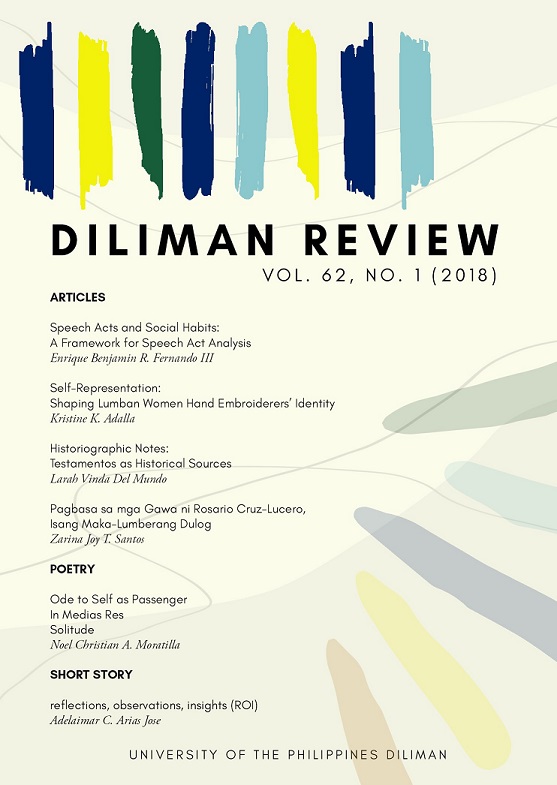SELF-REPRESENTATION: Shaping Lumban Women Hand Embroiderers’ Identity
Abstract
Embroidery is an insightful source for studying the articulation and expression of identity. Meaningful discoveries can surface through examining the interaction and relations that are connected in the production of hand embroidered products. Embroidery, as a female craft, symbolizes and reflects the women’s lived experiences.As a center of missionary activities during the Spanish regime in the Philippines, Lumban women hand embroiderers shaped their identity through being exposed to the craft at an early age. Through a creative workshop, it revealed that gender and ethnicity are the two essential factors in shaping their identity. Their perception of their individual identities constitutes the socially constructed roles and behaviors or traits that a woman must possess. Moreover, familial tradition and skills in embroidery helped shape their individual identity as women hand embroiderers, while their collective identity resulted from their strong affinity with their locality, as well as the relationships and friendships that they built as a community of embroiderers.
Keywords: embroidery, identity, lived experiences, gender, self-representation
Published
2020-12-20
How to Cite
ADALLA, Kristine K..
SELF-REPRESENTATION: Shaping Lumban Women Hand Embroiderers’ Identity.
Diliman Review, [S.l.], v. 62, n. 1, dec. 2020.
ISSN 0012-2858. Available at: <https://journals.upd.edu.ph/index.php/dilimanreview/article/view/7377>. Date accessed: 02 sep. 2025.
Issue
Section
Articles


